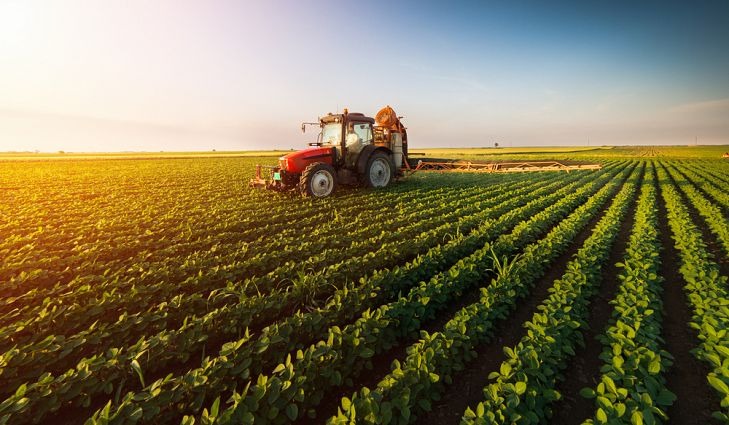In a world grappling with environmental challenges and the need for sustainable practices, the field of environmental agriculture has emerged as a beacon of hope. Combining the principles of agriculture with a strong commitment to environmental stewardship, careers in this sector offer a unique blend of opportunities and rewards.
This blog post delves into the promising landscape of environment agriculture jobs, highlighting how this field not only addresses global concerns but also offers fulfilling and financially viable career paths.
The Growing Importance of Environmental Agriculture
As the impacts of climate change become increasingly evident, the imperative to adopt sustainable practices in agriculture has never been clearer. Environmental agriculture, also known as sustainable agriculture, focuses on methods that optimize resource utilization, minimize environment agriculture jobs damage, and promote biodiversity. This approach encompasses various practices such as organic farming, agroforestry, integrated pest management, and precision agriculture.
The world of environment agriculture jobs, like any other sector, benefits from diverse perspectives and experiences. Encouraging individuals from various backgrounds to join this field brings in fresh ideas and innovative approaches to solving complex challenges. Moreover, as environmental issues impact marginalized communities disproportionately, having a diverse workforce ensures that solutions are equitable and inclusive.
One of the key rewards of pursuing a career in environmental agriculture is the profound impact it can have on the planet. By utilizing innovative techniques, these professionals contribute to soil health, water conservation, reduced greenhouse gas emissions, and the preservation of ecosystems. This not only ensures food security for future generations but also helps mitigate the adverse effects of climate change.
Diverse Career Paths in Environmental Agriculture
The realm of environmental agriculture offers a diverse range of career paths, catering to individuals with varied skills and interests. Here are some compelling opportunities within this field:
- Organic Farming Specialist: Organic farming is gaining momentum as consumers prioritize healthier, pesticide-free produce. Organic farming specialists work on cultivating crops and raising livestock without the use of synthetic chemicals, focusing instead on natural fertilizers and pest control methods.
- Agroforestry Expert: Agroforestry involves integrating trees and shrubs into farming systems to improve soil quality, enhance biodiversity, and generate additional income sources through timber and non-timber forest products.
- Sustainable Crop Consultant: These professionals provide farmers with advice on optimizing crop yields while minimizing environmental impact. They may recommend crop rotations, cover cropping, and no-till farming techniques.
- Precision Agriculture Technologist: Precision agriculture employs technology like GPS and remote sensing to create customized, data-driven approaches to farming. This reduces resource wastage by applying inputs like water and fertilizers precisely where and when they are needed.
- Agricultural Educator: Educators play a pivotal role in spreading awareness about sustainable agricultural practices. They work in schools, universities, and extension programs to equip the next generation of farmers with the knowledge needed to make eco-conscious decisions.
- Sustainable Supply Chain Manager: As consumers demand more sustainable products, companies are seeking professionals who can ensure that the entire supply chain, from farm to table, adheres to eco-friendly practices.
Also Read: Short-term Vs. Long-term Investment: Which is Better?
Rewards Beyond Profit
While financial stability is an important consideration, a career in environment agriculture jobs offers rewards that go beyond monetary compensation. The sense of purpose derived from knowing that your work directly contributes to the planet’s well-being is unparalleled. Environmental agriculture professionals often express a deep satisfaction in knowing that their efforts are helping to create a more sustainable future.
Moreover, working in close harmony with nature can have significant mental and emotional benefits. The serene environment of farms, the connection with natural processes, and the opportunity to witness the tangible results of your labor can lead to a sense of contentment and peace that few other careers offer. A career in environmental agriculture is a call to action—a call to mend the relationship between humanity and nature, and to coexist harmoniously with the planet that sustains us.
Challenges and Overcoming Them
Like any career path, environmental agriculture comes with its own set of challenges. The initial transition to sustainable practices can be demanding, requiring adaptation and learning new skills. Additionally, market demand for sustainably grown products might fluctuate, impacting income stability for some professionals.
However, these challenges are being addressed through education, research, and increased consumer awareness. As governments, organizations, and individuals recognize the urgency of sustainable practices, the demand for skilled environmental agriculture professionals is likely to rise, mitigating these challenges over time.
Educational and Skill Requirements
The educational requirements for environmental agriculture jobs can vary widely. Some positions may only require a high school diploma or vocational training, while others might necessitate a bachelor’s or even a master’s degree in fields such as agronomy, horticulture, ecology, or environmental science.
In addition to formal education, certain skills are highly valuable in this field:
- Problem-Solving: environment agriculture jobs professionals need to be adept at finding innovative solutions to the complex challenges posed by sustainable farming.
- Adaptability: As sustainable practices evolve, professionals must be open to learning and adapting to new techniques and technologies.
- Communication: Effective communication skills are crucial, whether working with farmers, educating the public, or collaborating with interdisciplinary teams.
- Technical Proficiency: Roles like precision agriculture technologists require proficiency in using advanced technologies to optimize farming practices.
- Passion for Sustainability: A genuine passion for environmental stewardship is a common trait among successful professionals in this field.
Conclusion
A career in environment agriculture jobs is not only a promising avenue for individuals seeking a fulfilling vocation but also a critical endeavor for the future of our planet. The opportunities for growth, innovation, and positive impact are substantial, making it an attractive option for those who want to combine their love for nature with meaningful work.
From organic farming to agroforestry and precision agriculture, the field offers a wide array of career paths to suit diverse skill sets and interests. Beyond financial rewards, the sense of purpose and contribution to a sustainable future make environmental agriculture jobs truly rewarding. As we collectively strive for a healthier planet, these professionals will continue to play an essential role in shaping the world for the better.
Also Read: The Importance of the Agriculture Industry




